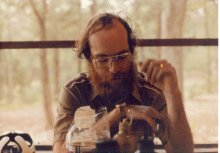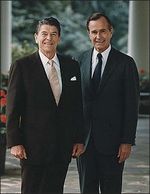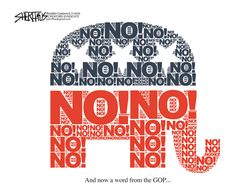
Viewers have short attention spans but journalists provide perspective
In fact the exact opposite is the case. Journalists — both print and TV — now work in an instant news cycle. We're not even talking of a 24 hour cycle any more — we're talking about instant, right-now back-and-forth, in which what happened just moments ago and what might happen moments from now don't matter.
Most people, on the other hand, are busy living their lives. There are a few — blog habitues and cable TV shut-ins — who live like reporter-rodents, but these are a very small minority. Yet, because this small minority is the audience for which print and TV journalists feel they must compete, the focus is entirely upon them.
It's like watching a dog chasing its tail.

I don't write this to brag, just to indicate I've been online longer than, say, Chuck Todd. What I have learned, more than anything, is that what I write or say today is, like the newspaper, gone by tomorrow. It doesn't matter. What does matter is the perspective I'm able to gain from that daily work, perspective that lets me ask the right questions and draw fairly accurate conclusions when I do have to cover a story first-hand — which I still do. (Again, apparently, unlike Chuck Todd.)
For Washington reporters, this has become ass-backwards. Most have stopped even trying to cover their beats. Instead they're engaged, non-stop, in the call-and-response that matters only to a fraction of their real audience, the activists and the hyper-active.
One result of this is that the opposition winds up controlling the agenda. This was true in the last years of the Bush Administration. It seems to be true now. Those who are most willing to display anger and focus 24-7 on whatever the call-and-response happens to be, those who insist on being inside the frame, are said to be public opinion.
They're not.
Public opinion is the last election. During a campaign, it may be the next election, but policy doesn't happen then. Policy happens between elections, based on those earlier results. Anyone who pretends otherwise is fooling themselves, and trying to fool the rest of us.
There are some indications the President and Congress are starting to pick up on this. If they push through their agenda via a majority vote, they can rise or fall based upon it, just as most Presidents and Congresses do — just as the two fellows below did. (They didn't need cloture to get their agenda through — their majorities were too small for it to happen.) If the government can't, or won't, enact their own agenda, no one should vote for them.

I happen to think people are sick of seeing their health insurance taken away because they get sick, and I think they're sick of market incentives being tilted in favor of tired, incumbent, no-job industries instead of wired, new, and fast-growing ones. I think most people recognize the Republicans today as clowns and buffoons, but I also think they'll gladly vote for the Silly Party if the Sensible Party won't govern.
So ignore the bloggers, ignore the pundits, and ignore the talking heads. Ignore Washington, Washington. Do your job, be willing to rise or fall on the results, and things will work out as well as they usually do.
Which is pretty darn well.










